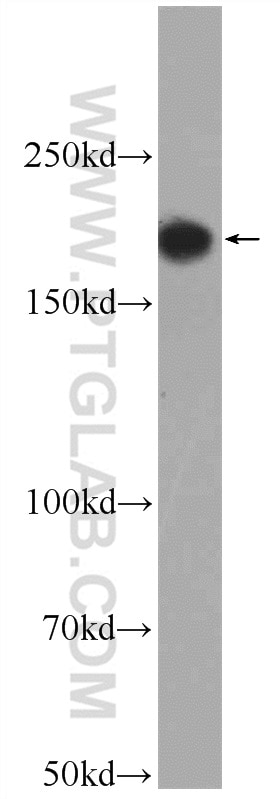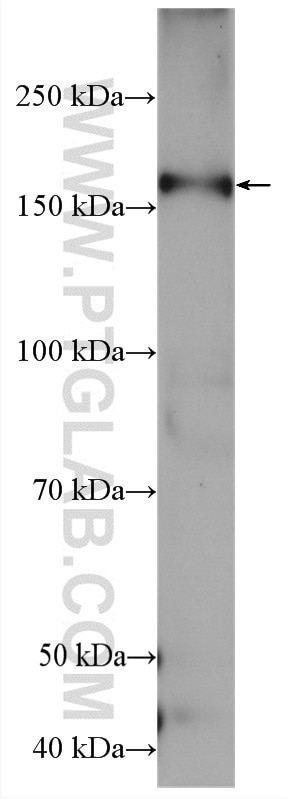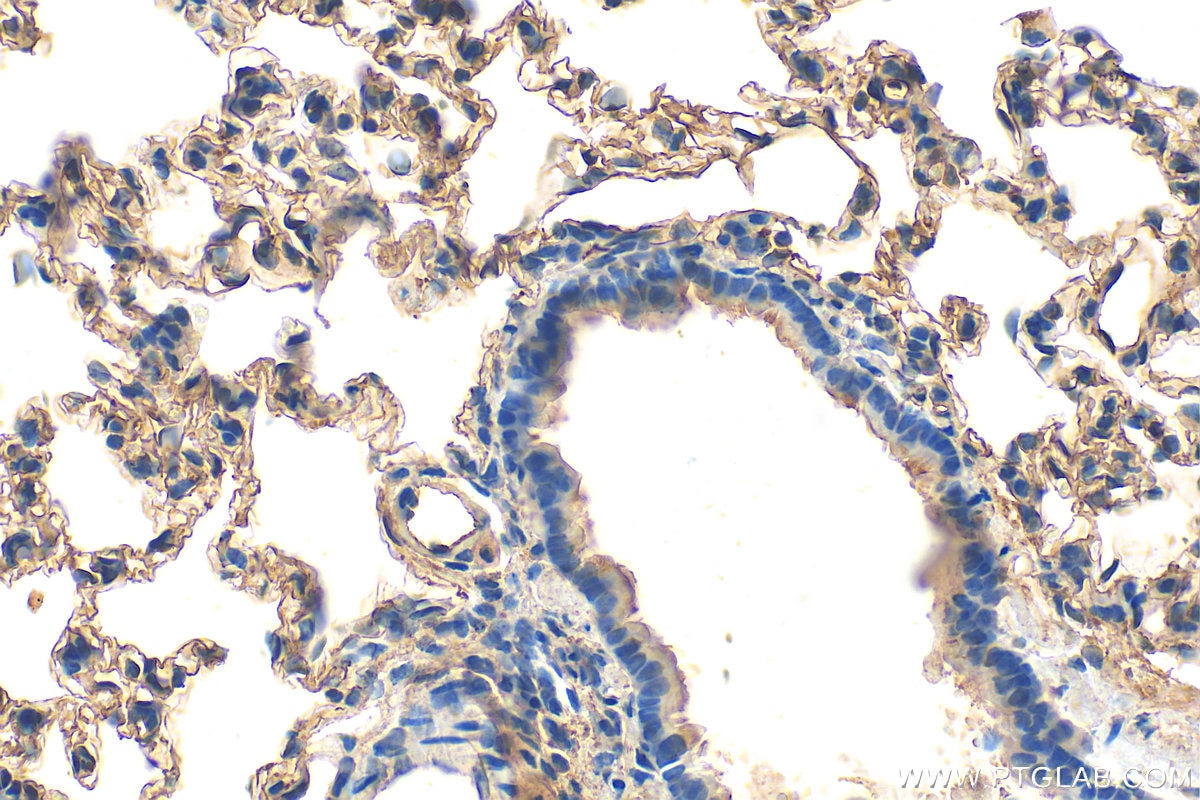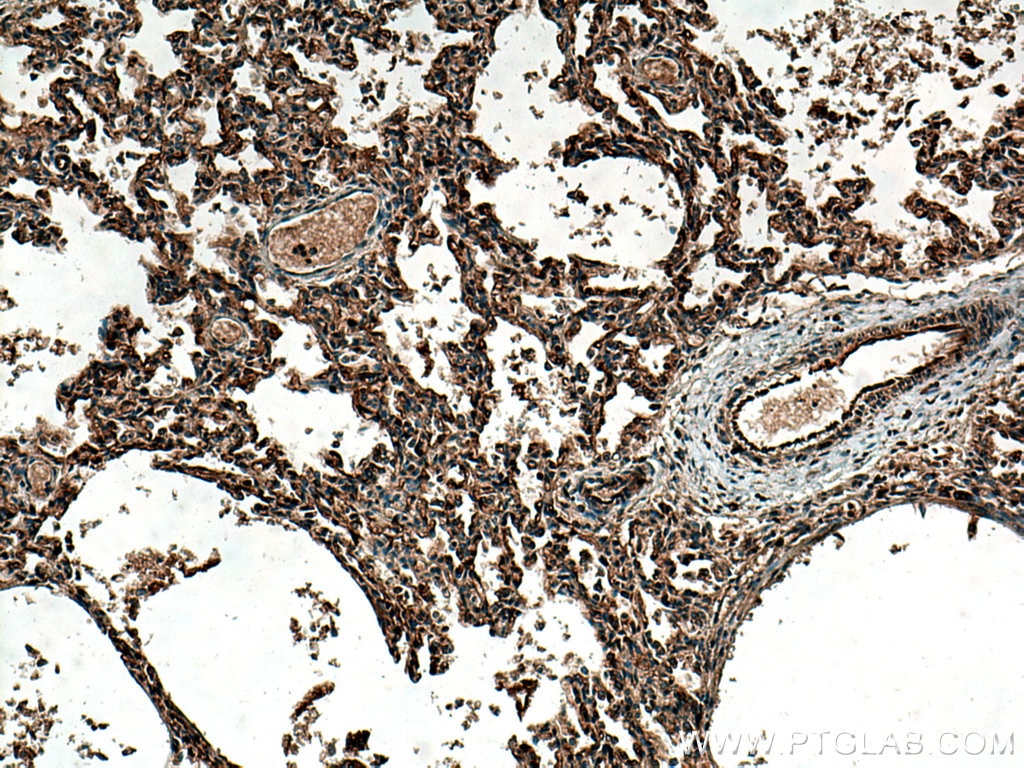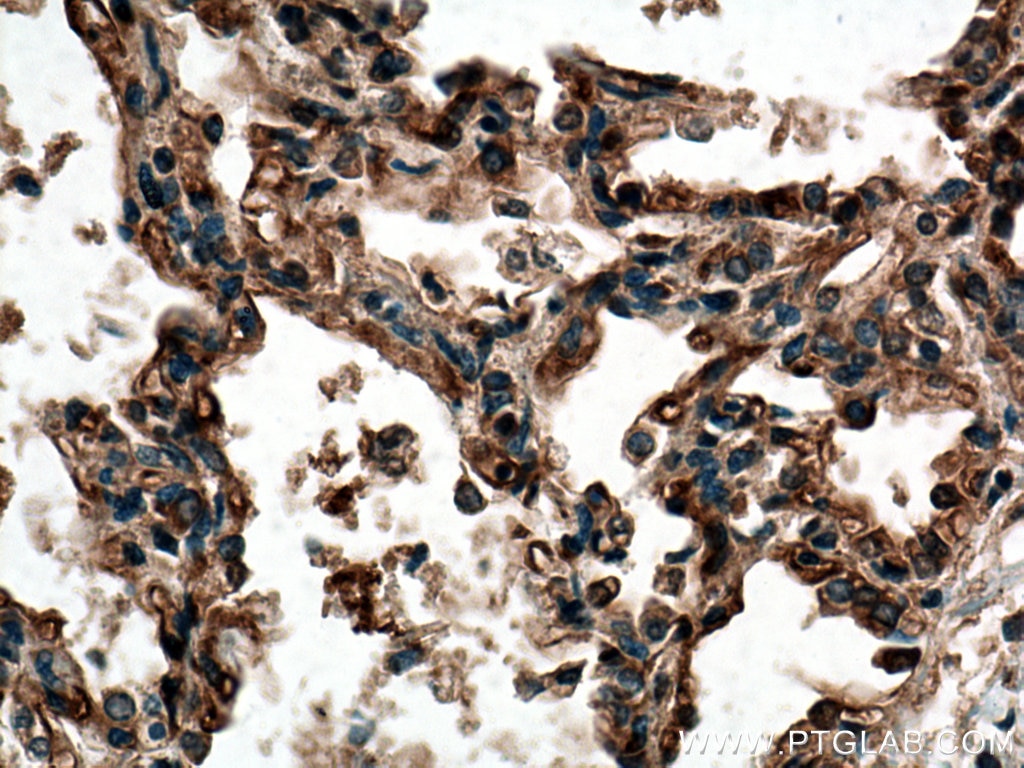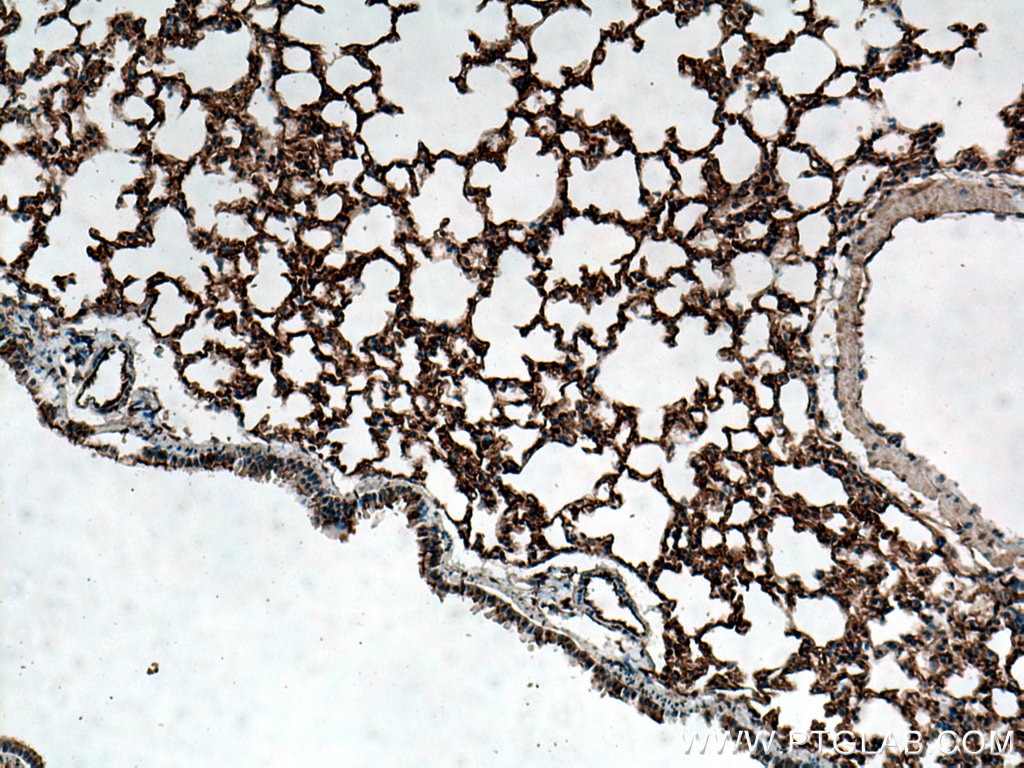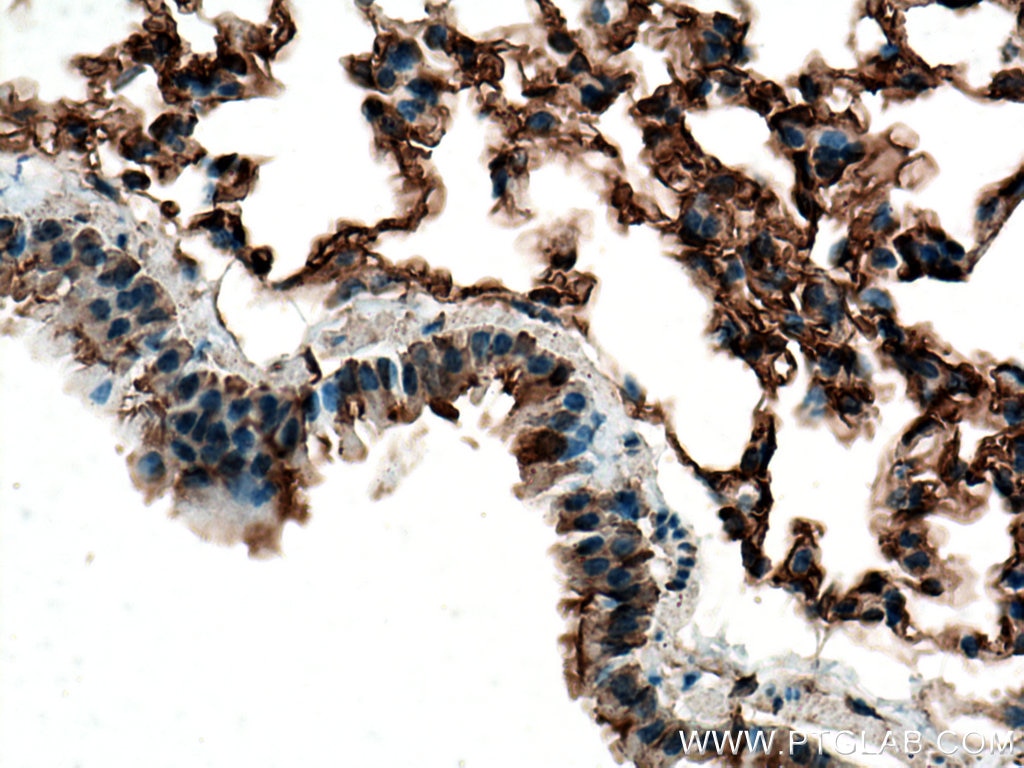ACE Polyklonaler Antikörper
ACE Polyklonal Antikörper für WB, IHC, ELISA
Wirt / Isotyp
Kaninchen / IgG
Getestete Reaktivität
human, Maus, Ratte und mehr (1)
Anwendung
WB, IHC, IF, CoIP, ELISA
Konjugation
Unkonjugiert
Kat-Nr. : 24743-1-AP
Synonyme
Geprüfte Anwendungen
| Erfolgreiche Detektion in WB | Mausherzgewebe |
| Erfolgreiche Detektion in IHC | Rattenlungengewebe, humanes Lungengewebe, Mauslungengewebe Hinweis: Antigendemaskierung mit TE-Puffer pH 9,0 empfohlen. (*) Wahlweise kann die Antigendemaskierung auch mit Citratpuffer pH 6,0 erfolgen. |
Empfohlene Verdünnung
| Anwendung | Verdünnung |
|---|---|
| Western Blot (WB) | WB : 1:500-1:2000 |
| Immunhistochemie (IHC) | IHC : 1:50-1:500 |
| It is recommended that this reagent should be titrated in each testing system to obtain optimal results. | |
| Sample-dependent, check data in validation data gallery | |
Veröffentlichte Anwendungen
| WB | See 24 publications below |
| IHC | See 9 publications below |
| IF | See 3 publications below |
| CoIP | See 1 publications below |
Produktinformation
24743-1-AP bindet in WB, IHC, IF, CoIP, ELISA ACE und zeigt Reaktivität mit human, Maus, Ratten
| Getestete Reaktivität | human, Maus, Ratte |
| In Publikationen genannte Reaktivität | human, Maus, Ratte, Rind |
| Wirt / Isotyp | Kaninchen / IgG |
| Klonalität | Polyklonal |
| Typ | Antikörper |
| Immunogen | ACE fusion protein Ag20654 |
| Vollständiger Name | angiotensin I converting enzyme (peptidyl-dipeptidase A) 1 |
| Berechnetes Molekulargewicht | 150 kDa |
| Beobachtetes Molekulargewicht | 170 kDa |
| GenBank-Zugangsnummer | BC036375 |
| Gene symbol | ACE |
| Gene ID (NCBI) | 1636 |
| Konjugation | Unkonjugiert |
| Form | Liquid |
| Reinigungsmethode | Antigen-Affinitätsreinigung |
| Lagerungspuffer | PBS with 0.02% sodium azide and 50% glycerol |
| Lagerungsbedingungen | Bei -20°C lagern. Nach dem Versand ein Jahr lang stabil Aliquotieren ist bei -20oC Lagerung nicht notwendig. 20ul Größen enthalten 0,1% BSA. |
Hintergrundinformationen
ACE(Angiotensin-converting enzyme) is also named as DCP, DCP1 and belongs to the peptidase M2 family. It is involved in catalyzing the conversion of angiotensin I into a physiologically active peptide angiotensin II. ACE also has a glycosidase activity which releases GPI-anchored proteins from the membrane by cleaving the mannose linkage in the GPI moiety. It has 4 isoforms produced by alternative splicing. The full length protein has 15 glycosylation sites and it can show a molecular weight of 170 kDa(PMID:16804085).
Protokolle
| PRODUKTSPEZIFISCHE PROTOKOLLE | |
|---|---|
| WB protocol for ACE antibody 24743-1-AP | Protokoll herunterladen |
| IHC protocol for ACE antibody 24743-1-AP | Protokoll herunterladenl |
| STANDARD-PROTOKOLLE | |
|---|---|
| Klicken Sie hier, um unsere Standardprotokolle anzuzeigen |
Publikationen
| Species | Application | Title |
|---|---|---|
Oxid Med Cell Longev Tissue Renin-Angiotensin System (tRAS) Induce Intervertebral Disc Degeneration by Activating Oxidative Stress and Inflammatory Reaction. | ||
J Med Chem Hypoxia Activated Nitric Oxide Donor Compounds for the Prevention and Treatment of Myocardial Hypoxia-Induced Injury | ||
Diabetol Metab Syndr Celastrol attenuates streptozotocin-induced diabetic cardiomyopathy in mice by inhibiting the ACE / Ang II / AGTR1 signaling pathway | ||
Am J Physiol Renal Physiol Adequate salt intake is essential for candesartan-treated rats to maintain renal function | ||
ACS Omega Azelaic Acid Regulates the Renin-Angiotensin System and Improves Colitis Based on Network Pharmacology and Experimentation |
